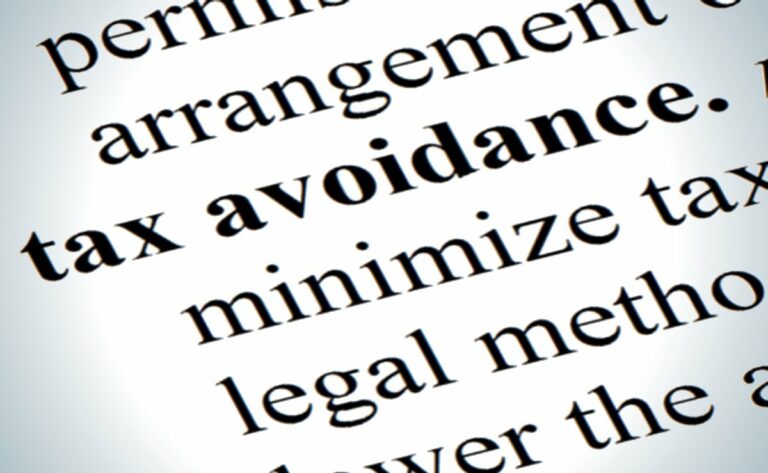Federal Prosecutions Serve as Reminder to Comply with Tax Obligations as Filing Deadline Approaches
CHICAGO — Federal authorities today announced criminal charges against several Chicago-area defendants for a variety of alleged tax schemes. With tax season in full swing, the prosecutions serve as a warning that individual taxpayers are responsible for the contents of their own return.
The criminal prosecutions announced today include charges against two Chicago tax preparers who allegedly assisted clients in obtaining thousands of dollars in fraudulent refunds, as well as charges against individuals accused of knowingly filing false tax returns or willfully failing to file tax returns as required.
In addition to potential criminal penalties, including incarceration, tax evaders remain responsible for all taxes and interest due, as well as civil penalties. The nation’s tax deadline this year is April 17.
“Tax offenses are neither victimless nor without consequence,” said John R. Lausch, Jr., United States Attorney for the Northern District of Illinois. “Taxes are how governments provide essential services. Our office strives to preserve the integrity of the federal tax system through vigorous criminal enforcement of the internal revenue laws.”
“Federal income tax compliance should be equally shared among all of the roughly 9.5 million Chicagoland residents,” said Gabriel Grchan, Special Agent in Charge, IRS Criminal Investigation, Chicago Field Office. “IRS-CI will continue focusing investigative efforts on individuals who contribute to the tax gap and do not comply with the law. With the filing deadline approaching, Chicagoans who might be thinking about cheating should think twice or risk the consequences.”
In an indictment returned last month, a federal grand jury charged JOHN OCWIEJA, 49, of Chicago, with six counts of willfully failing to file an income tax return. Ocwieja allegedly failed to file individual returns for the calendar years 2011 through 2016. Ocwieja has pleaded not guilty to the charges. A status hearing is set for May 9, 2018, before U.S. Magistrate Judge M. David Weisman. The government in Ocwieja’s case is represented by Assistant U.S. Attorney Andrianna Kastanek.
In another tax prosecution, professional tax preparer ANNA PLATOS, 58, of Hickory Hills, is charged with 19 counts of preparing and filing false and fraudulent income tax returns, and one count of obstructing the IRS. Platos, who owned Chicago-based Midway Accounting, filed the returns on behalf of numerous individuals for the tax years 2011 and 2012, according to the indictment. The returns claimed false tax deductions for car and truck expenditures, medical expenses, charitable gifts, and educational expenses, the indictment states. Platos has pleaded not guilty to the charges. A status hearing is set for May 8, 2018, before U.S. District Judge Amy J. St. Eve. The government in Platos’s case is represented by Assistant U.S. Attorney James P. Durkin.
The other professional tax preparer recently charged is IRVING BROWN SR., 69, of Chicago, who operated Irving Brown Sr. Tax Services. According to the indictment, Brown understated his own taxable income for the tax years 2011 and 2012, and he filed returns for taxpayers that he knew to contain false business losses. Brown also allegedly obstructed an IRS audit by fabricating documents and causing a taxpayer to submit them to the IRS. He is charged with two counts of subscribing a false tax return, twelve counts of aiding and abetting the filing of a false tax return, and one count of interfering with the administration of internal revenue laws. Brown has pleaded not guilty to the charges. A status hearing is set for May 9, 2018, before U.S. District Judge Robert W. Gettleman. The government in Brown’s case is represented by Assistant U.S. Attorney Andrew Erskine.
The U.S. Attorney’s Office also recently charged TARA D. SMITH, of Charlotte, N.C., with one count of willfully filing a false income tax return on her own behalf. Smith pleaded guilty to the charge earlier this week. In a plea agreement, Smith admitted that for the calendar year 2014, she filed a return that falsely claimed her total income was approximately $18,260, when she knew that her total income substantially exceeded that amount. Smith’s sentencing is set for July 20, 2018, before U.S. District Judge Sara L. Ellis. The government in Smith’s case is represented by Assistant U.S. Attorney Erika L. Csicsila. The City of Chicago Inspector General’s Office assisted in the Smith investigation.
A criminal information filed this month charges MICHAEL CIELAK, 54, of Chicago, with filing false tax returns. The charges allege that Cielak operated a business that generated scrap metal, and that he failed to report the income he received from the sale of scrap. Cielak will be arraigned on April 17, 2018, before U.S. Magistrate Judge Daniel G. Martin. The government in Cielak’s case is represented by Assistant U.S. Attorney Patrick King.
Earlier this month, the U.S. Attorney’s Office charged BARRY POTICHA, 73, of Northbrook, with scheming to impede the IRS. According to the charges, Poticha worked as the office manager and bookkeeper for two Chicago-area staffing companies. From 2000 through 2010, Poticha allegedly prepared and filed fraudulent tax returns to avoid the payment of employment taxes owed by the companies. Poticha will be arraigned on April 16, 2018, before U.S. District Judge Gary Feinerman. The government in Poticha’s case is represented by Assistant U.S. Attorney Kathryn E. Malizia.
A federal grand jury earlier this month indicted LATASHA MOSS, 30, of Cicero, with theft of government funds in relation to the theft of federal income tax refunds issued for returns filed in the name of other individuals. Moss will be arraigned on April 12, 2018, before U.S. Magistrate Judge Jeffrey T. Gilbert. The government in Moss’s case is represented by Assistant U.S. Attorney Sean K. Driscoll.
The public is reminded that charges are not evidence of guilt. The defendants with pending charges are presumed innocent and entitled to a fair trial at which the government has the burden of proving guilt beyond a reasonable doubt. If convicted, the Court must impose reasonable sentences under federal statutes and the advisory U.S. Sentencing Guidelines.

